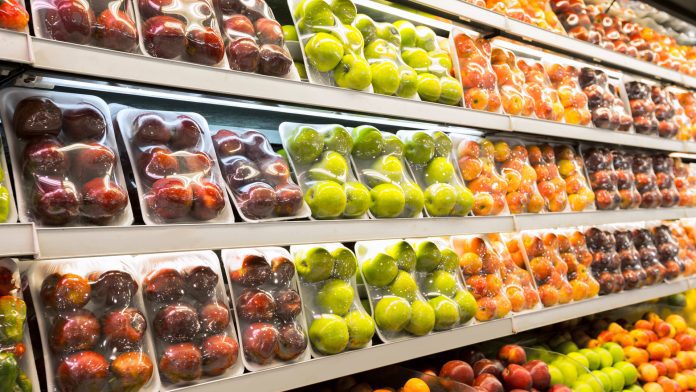
Consumer products made from plastic contain chemicals that may promote the development of weight gain and obesity.
Plastic is found in many consumer products, including food packaging. It is commonly used for practicality as it is cheap and increases a food’s shelf life. Yet, it contains thousands of different chemicals; some of these affect your metabolism and possibly lead to weight gain.
Weight gain is often a consequence of poor dietary habits or being less active, but it can be more complicated. It can occur as a side effect of certain medications or due to other lifestyle habits. The impact of chemicals in plastic is an understudied area; however, it could be contributing to weight gain.
The Norwegian University of Science and Technology investigated the link between plastic products and weight gain.
Chemicals and weight gain
“Our experiments show that ordinary plastic products contain a mix of substances that can be a relevant and underestimated factor behind weight gain and obesity,” said Martin Wagner, an associate professor at NTNU’s Department of Biology.
To gain a comprehensive understanding of plastics as a source of weight gain, the research group looked at 34 different plastic products in the laboratory to see which chemicals they contained to understand the correlation with weight gain. Many people use these everyday products, like yoghurt containers, drink bottles, and kitchen sponges.
The researchers found over 55,000 different chemical components in these products and identified 629 of these substances. Eleven of them are known to interfere with our metabolism, called metabolism-disrupting chemicals, which can result in weight gain.
Experts have believed for a long time that most plastic chemicals would stay in the material. However, Wagner’s team recently showed that plastic products leach many chemicals under real-world conditions, enabling them to enter the body. Previous research also suggested that some plastics contain endocrine-disrupting chemicals that may affect our development and fertility. The new study revealed that the chemicals may contribute to weight gain too.
Major societal problem
Obesity and being overweight contribute to some of the most common causes of death in the world, such as cardiovascular disease and cancer. They can also increase our susceptibility to various infections, such as the effects of COVID-19.
Around two billion people in the world are overweight, and the problem is growing. Approximately 650 million of these falls into the obese category. The number of obese people worldwide has tripled since 1975, and in 2016, more than 41 million children under five were classified as overweight or obese.
The researchers noted that the reasons for the growing obesity rates are complex, but plastic chemicals may be a factor that has not previously been considered, these chemicals include phthalates and bisphenols, but the new study shows that there are many more substances that trigger these problematic effects.
The results of the latest study have been published in Environmental Science & Technology. The researchers came mainly from NTNU, with contributing partners from Goethe University in Frankfurt am Main, Germany.









